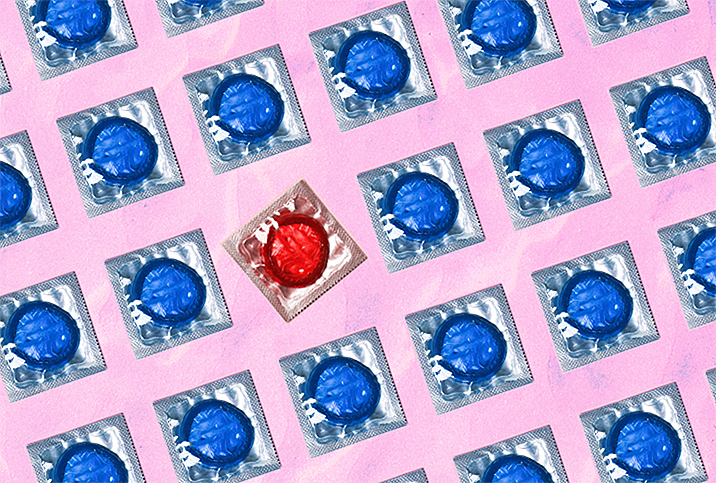The Connection Between OCD and Anxiety

Anxiety disorders are the most common type of mental illness in America, as they affect more than 40 million adults in the U.S. each year, according to the Anxiety & Depression Association of America. The association also reports that 2.2 million adults in the U.S. have obsessive-compulsive disorder, or OCD.
While generalized anxiety disorder and OCD are two separate mental health issues, there's a significant amount of overlap in their symptoms.
Understanding anxiety and OCD
Everyone experiences anxiety or stress occasionally. However, for individuals with generalized anxiety disorder, these feelings are excessive and persistent, often getting in the way of daily activities and responsibilities. This anxiety can manifest in mental, emotional and physical distress. OCD, on the other hand, is defined by obsessions (unwanted thoughts, images or urges) and compulsions (the ritualistic behaviors that an individual performs in an attempt to ignore or get rid of the obsessions).
Having OCD is much more than being a perfectionist. People with the disorder often face significant distress and have trouble doing daily activities as a result. According to the Mayo Clinic, OCD often centers around certain themes or specific fears, such as the fear of germs. For example, the disorder could cause a person with an intense fear of germs and contamination to compulsively wash their hands or brush their teeth, even to the point their hands get dry and raw or their gums bleed.
Just as is the case with generalized anxiety disorder, OCD can interfere with daily life and responsibilities.
Where symptoms overlap and diverge
A major overlap between the symptoms caused by generalized anxiety disorder and OCD is a persistent and intense anxiety or fear. People with generalized anxiety disorder may feel a looming sense of stress and anxiety without knowing why. These sensations are similar to obsessions a person with OCD has—though the source of OCD is often known, centering around specific and persistent fears.
Some common types of obsessions are a fear of germs or dirt, and an intense need to keep things orderly and symmetrical. Other common obsessions include the persistent thought of or urge to carry out inappropriate or aggressive behavior toward yourself or others, unpleasant sexual images, and fears or doubts you forgot to do something important, such as locking the doors before you go to sleep.
Here are some common overlapping symptoms between generalized anxiety disorder and OCD:
- Persistent worry or anxiety out of proportion with the source of the anxiety
- Catastrophic thinking
- Difficulty handling uncertainty
- Overwhelming fear of making decisions
- Inability to let go of a worry
- Feeling on edge, unable to relax
- Trouble concentrating
There's one major difference between the symptoms caused by OCD and generalized anxiety disorder: compulsions. Compulsions are the repetitive behaviors, or rituals, people with OCD feel an intense need to perform in order to calm the fears and anxieties associated with their obsessive thoughts or urges. These compulsive behaviors typically provide only temporary relief from anxiety, leading to a cycle of repetition. Common compulsions include excessive handwashing, cleaning, organization, asking for reassurance, counting, keeping a very strict routine and more. There is a sense of helplessness due to the inability to cope with both the obsessions and the compulsions.
What is the link?
As is the case with many mental health conditions, the exact causes of OCD and generalized anxiety disorder are unknown. Medical experts believe the disorders likely stem from a complex interaction between biological and environmental factors, according to the Mayo Clinic. Some of these differences include brain chemistry and function, genetics, personality, stressful life events and more.
Researchers have found individuals with generalized anxiety disorder are at greater risk of developing OCD at some point, and vice versa.
If you're struggling with your mental health, be sure to reach out to a doctor or a mental health professional right away. Fortunately, there are effective treatments available for both OCD and generalized anxiety disorder.

















